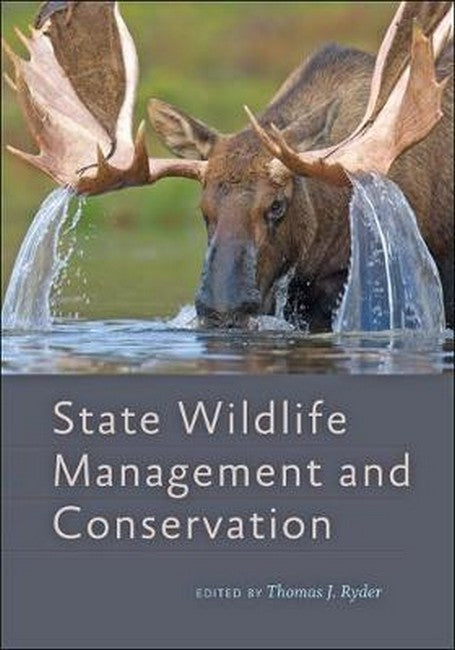Preface
Acknowledgments
1. History of State Wildlife Management in the United States, by John F. Organ and Richard McCabe
2. Public Trust Doctrine and the Legal Basis for State Wildlife Management, by Gordon R. Batcheller, Thomas Decker, and Robert P. Lanka
3. State Fish and Wildlife Agencies and Conservation, by Jennifer Mock Schaeffer, M. Carol Bambery, Parks Gilbert, and Gary J. Taylor
4. Evolution of Funding for State Fish and Wildlife Agencies, by Ronald J. Regan and Steve Williams
5. State Wildlife Law Enforcement, by Brian R. Nesvik, Randall J. Stark, and Dan Thompson
6. State Management of Big Game, by Vernon C. Bleich and Dan Thompson
7. State Management of Upland and Small Game, by David Dahlgren, Michael A. Schroeder, and William Dukes, Jr.
8. State Management of Furbearing Animals, by Tim L. Hiller, H. Bryant White, and John Erb
9. State Management of Migratory Game Birds, by Mark P. Vrtiska and Shaun L. Oldenburger
10. State Management of Nongame Wildlife, by Karie Decker, Mark Humpert, and J. Scott Taylor
11. State Management of HumanWildlife Conflicts, by Kurt VerCauteren, Daniel L. Hirchert, and Scott Hygnstrom
12. State Management of Wildlife Disease, by Colin M. Gillin
13. The Role of Human Dimensions in State Wildlife Management, by Daniel J. Decker, William F. Siemer, Ann B. Forstchen, and Christian A. Smith
14. The Role of Field Research in State Wildlife Management, by Chad Bishop and Michael W. Hubbard
15. Future Needs and Challenges for State Wildlife Agencies, by Jonathan Gassett
Index
Request Academic Copy
Please copy the ISBN for submitting review copy form
Description
""State Wildlife Management and Conservation is an important book that chronicles the history of wildlife management in America and introduces the varied yet very important roles and responsibilities that state wildlife agencies and their wildlife biologists face when making management decisions for the benefit of the resource and future generations. The book is an invaluable and timely resource as agencies strive to fill key conservation roles with well-equipped and adequately educated young wildlife professionals. Professors, aspiring wildlife students, and the next generation of wildlife professionals will all benefit from this text because it outlines the demands of today's wildlife professionals and the challenges ahead for all seeking to become a state wildlife biologist.""

